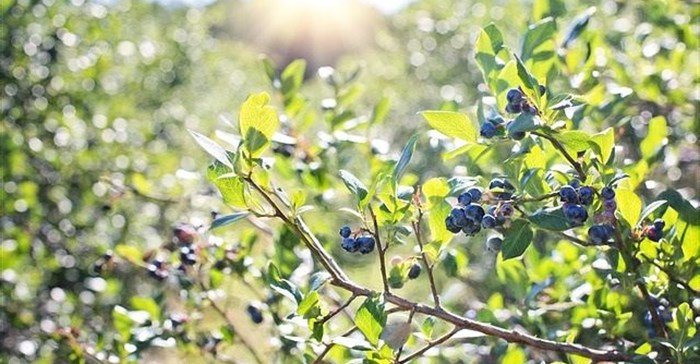Sustainable blueberry farming key to growth and continuity

“At least 80% of South African blueberry production is exported and more than half of our supply goes to the United Kingdom, while Europe, the Middle East and the Far East (Hong Kong, Singapore, Malaysia) are also significant export regions. The demand for blueberries in these regions is on the rise due to the growing popularity of health foods and the mounting evidence behind the nutritional benefits of blueberries.”
Sustainable farming practices to pave the way for growth
Although the planned upsurge in blueberry supply predicted for the year ahead is immense, Horak stresses that a sustainable approach to growing should still be strictly adhered to by farmers. “The high quality of our local product is what drives demand among global audiences. To ensure that South Africa remains a top exporting region and continues to meet global expectations, strict processes need to be followed when producing blueberries. The extremely fragile nature of blueberries means that they cannot be mass-produced but rather needs to be grown outside in a sustainable, dynamic, biological environment.”
He encourages the industry to ensure that sustainable farming practices are also followed as it will help grow the agricultural sector, which is a key driver of economic growth in South Africa. “In December 2017, Statistics South Africa reported that the agricultural sector was the main contributor to the rise in SA’s GDP in 2017 - surging 14.9% quarter on quarter – the biggest quarterly growth for the sector in 21 years. Growth like this is what we want for the industry and sustainable farming methods pave the way for this growth.
“With growth comes the rewards of increased GDP and its associated benefits and further employment opportunities. Furthermore, by investing in non-traditional berry growing areas the industry is actively creating new employment opportunities and farmers continue to play an active role in the upliftment of these communities through the empowerment of the individuals through job opportunities and associated training,” says Horak.
Remianing socially and environmentally sustainable
“In terms of remaining socially sustainable, we recognise that if it were not for our hard-working employees we would be nothing, and, as such, we set out to provide uplifting, fair and equitable workplaces and have set policies to ensure this happens.
“Ozblu blueberries aren’t produced in a factory. They’re grown outside in a sustainable, dynamic, biological environment. We are 100% vertically integrated, meaning we are responsible for every stage of the blueberries’ production, and our farmers work in harmony with nature to create our bigger, bolder blueberries.”
Horak concludes that no matter how big the volume of blueberries supplied becomes, Ozblu’s first priorities remain safety, ethics, sustainability and transparency. “These are the principles that guide our decisions and actions related to environmental protection, resource conservation, business practices, and the health, safety, and well-being of our consumers, employees, farmers, their workers and our broader community.”